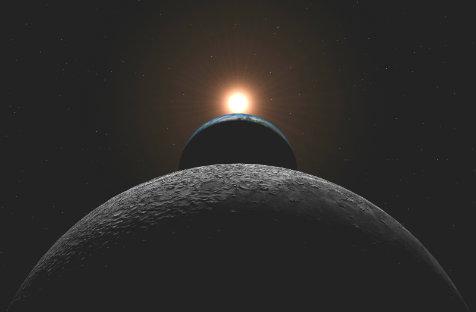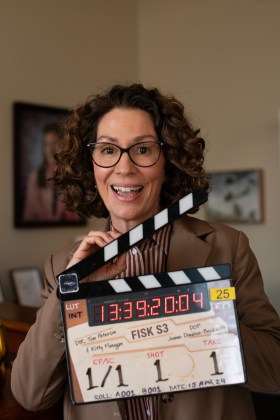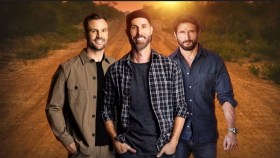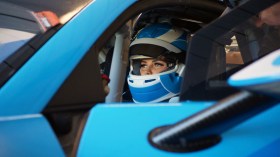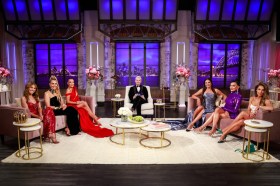Over 90 musicians from the Adelaide Symphony Orchestra, and over 60 voices in the Adelaide Chamber Singers, combined with Stanley Kubrick’s groundbreaking 1968 classic to create an unlikely, yet enjoyable, experience at the Adelaide Festival Theatre.
Warner Brothers have re-mastered a version of Stanley Kubrick’s seminal science fiction film, 2001: A Space Odyssey, without the original soundtrack. In 2012, as part of the festivities to celebrate the 350th anniversary of the Royal Society, the score was played live by the Philharmonia Orchestra and Choir at a showing of the film at the Southbank Centre. This version of the film – which also screened in January at the Sydney Festival – was projected onto a screen almost filling the Festival Theatre’s stage. Robert Ziegler conducted the Orchestra with great care and skill, most noticeably and effectively during the opening credits featuring the fanfare ‘Sunrise’ from Richard Strauss’ Also sprach Zarathustra. The alignment of the memorable dawn motif from this work with the opening credits on screen was perfect, as it needed to be, and set the tone for an evening of accomplished performance.
The film itself is still remarkable for its simplicity, beauty and obscurity. The screenplay, co-written by Kubrick and science fiction novelist Arthur C. Clarke, is divided into four parts, all of which revolve around encounters between humans (and their ancestors) and mysterious, perfectly formed black monoliths that play a role in human evolution. When one of these monoliths is found on the moon, a space voyage to Jupiter is organised to trace a signal emitted by that monolith. Trouble ensues when the sentient computer on the voyage, HAL 9000 (voiced by Douglas Rain) comes into conflict with the two astronauts (Keir Dullea and Gary Lockwood).
The film’s soundtrack is one of cinema’s most recognisable. One of the reasons for this is the sparse script and the separation of dialogue and score; approximately half of the film’s music is heard before the first spoken line and after the last spoken line. Kubrick associated the rotating motion of satellites, which appear frequently throughout the film, with the movement of dancers of waltzes, and consequently Johann Strauss’s The Blue Danube features prominently. In addition to the music of Richard Strauss, mentioned earlier, other traditional compositions by both Strausses and Russian composer Aram Khatchaturian feature throughout. György Ligeti’s modernistic compositions featuring slowly shifting dissonant chords are heard in stark contrast to the majesty of the Strausses contributions. The Orchestra handles these shifts in moods and style competently.
It may be concerning for some patrons that for most of the ASO’s only 2013 Adelaide Festival performances the Orchestra appears to be playing ‘second fiddle’ to the film; the orchestra is idle for long periods during the film that have no score. The fact that a small number of patrons in the stalls complained that they could not see the film because the conductor blocked their view is also revealing.
The concept of playing film scores live to accompany films is obviously not new; without it silent movies would have remained silent. It would not be unreasonable to suggest that today the popularity of film is being used to attract new audiences for struggling orchestras. Perhaps this is not such a bad thing as such performances, especially in a primarily non-verbal film such as 2001, may serve to remind that the cinematic experience owes a debt of gratitude to the contribution made by composers, conductors, musicians and singers.
Rating: 3 ½ stars out of 5
2001: A Space Odyssey
Directed by Stanley Kubrick
Adelaide Symphony Orchestra
Adelaide Chamber Singers
Conductor: Robert Ziegler
Chorus director: Carl Crossin
In association with Warner Brothers, Southbank Centre, and the British Film Institute
Adelaide Festival Theatre
8 – 9 March
Adelaide Festival 2013
www.adelaidefestival.com.au
1 – 17 March
Actors:
Director:
Format:
Country:
Release:
